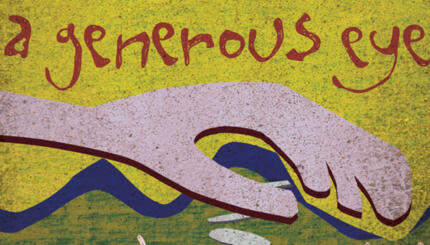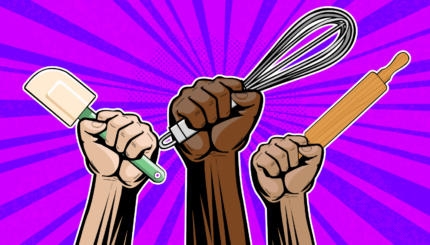For years, the UJC has been promising to give “the younger generation” a more prominent public role at the GA. This year, they took some giant steps.
The biggest was a plenary session called “The Next Generation: Social Action, Social Networking, and Social Entrepreneurship,” which featured Ari Sandel, the director of West Bank Story; Sarah Chasin a student at George Washington University, who spent time working in Mississippi after Katrina; the directors of an Israeli program called Ayalim; Idit Klein, director of Keshet; Esther Kustanowitz a blogger and editor at PresentTense Magazine; and our good friend Dan Sieradski, formerly of Jewschool (and currently Director of Digital Media at JTA).
The previous day I had attended another session of “young folk” moderated by JDub President Aaron Bisman, focusing on the relationship between upstart organizations and the Federation world.
Several of these presenters are friends of mine and many of them gave wonderful presentations, but something about the combined efforts irked me. During one of the sessions, I leaned over to a friend and said: “We sound so spoiled.”
Here’s what I mean: There was a lot of talk about the “younger generation” wanting a “seat at the table.” There was talk of telling the UJC “you need to tell us what you do for us.” There was talk of identity and meaning.
But virtually no talk of responsibility and charity.
The starkest example of this came from Sarah Chasin, the GW student. For a college student, Sarah was remarkably poised speaking to 3,500 people, and I’m sure she’s a wonderful person, but in her speech, she mentioned being challenged by a Mississippian who told her that she wasn’t really helping out Katrina victims for the victims themselves; they’d be fine without her. She was doing it for herself.
Sarah realized that he was right. She was doing it for herself.
Amazingly, after telling this story, revealing this honest bit of personal reflection, she never returned to emend it. And so we were left with the impression that not only are the “young” cultural initiatives about us; so are the service programs.
Now, I don’t want to read too much into Sarah’s remark or the gestalt of the others. And there were many exceptions in every speech to the narcissitic ethos I’m painting. A lot of important things were discussed, and the UJC crowd seemed to respond well to all of it. But there’s something to be said for generational self-reflection, and the GA highlighted some things that we — members of the 21-40 crowd — need to think about.
Much of the work the UJC does is in the area of social services: emergency support, feeding the hungry, etc. I mentioned to a Federation representative from Atlanta: You should be asking us what we’re doing to support these causes. What are we — “the younger generation” — doing to make sure that nursing homes (and the like) are sufficiently well-funded?
Unfortunately, I think most of us would say: nothing. We’re too busy worrying about our identities.
So the GA’s inclusion of younger voices this year was important for two reasons: it was a response to years of justifiable grumbling and it forced us to confront the limits of our own (youthful) ideas and passion.
(For similar musings, see Jacob Berkman’s post at the JTA blog.)


